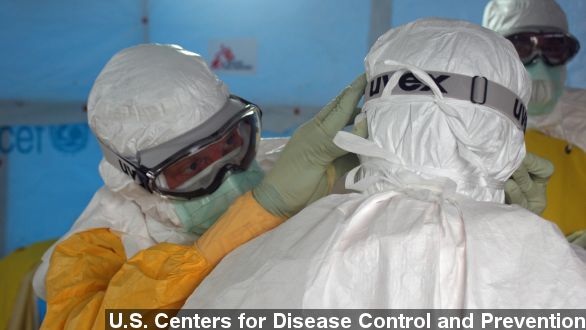After six weeks without any new cases, Nigeria is now free of Ebola, according to the World Health Organization. Here's how it beat the outbreak.
The initial response was critical. The disease was introduced back in July when a man displaying Ebola symptoms traveled from Liberia to an airport in Lagos. It could have been a disaster scenario. (Video via ENCA)
After all, at 21 million people, Lagos is the most populous city in Africa. But a bit of luck kept the virus from spreading.
A lecturer at the University of Pretoria tells Scientific American it's a good thing the patient's symptoms were spotted at an airport before he had the chance to travel elsewhere.
The same day he was diagnosed, the Nigerian government came up with an incident management center and shortly after declared an Ebola emergency. Granted, that diagnosis came three days after the patient arrived in Lagos.
He was first treated for malaria and during that time infected 11 health workers in Lagos. One of them then spread the infection to the city of Port Harcourt.
In all, eight people died out of a total of 20 cases — a pretty remarkable figure compared to the thousands of infections reported in other countries.
To keep those 20 cases from spreading to Nigeria's slums, health officials used a method called contact tracing, which essentially means tracking down everyone who came in direct contact with an Ebola patient.
In Nigeria, the 20 Ebola patients had contact with a total of 898 people.
"You need to wash your hands."
A public awareness campaign also played a part. Officials went door to door and explained the disease to the 26,000 families who lived within 2 kilometers of those 20 patients. (Video via PBS)
And unlike some of the poorer, harder-hit countries, Nigeria — Africa's wealthiest nation — had at its disposal some key resources, including multiple labs able to test for the virus.
Senegal is also free of Ebola, but Guinea, Sierra Leone and Liberia have not been able to stop its spread. The Centers for Disease Control and Prevention estimates there could be as many as 1.4 million cases worldwide by January.
This video includes images from Getty Images, U.S. Centers for Disease Control and Prevention and Google.


